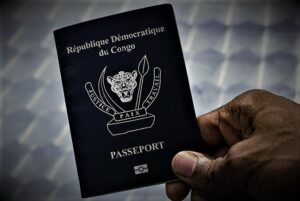When we talk about the “time in Vietnam,” we’re not just talking about the hours on a clock. We’re diving into a rich history and vibrant culture that spans centuries. The concept of time in Vietnam has been shaped by ancient traditions, colonial influences, and modern changes. From the olden days of feudal laws to today’s bustling cities, the way people in Vietnam experience time is fascinating and diverse.
The “time in Vietnam” also includes how the country manages its time zones and celebrations. Vietnam is in the Indochina Time Zone, which is 7 hours ahead of Coordinated Universal Time (UTC+7). This time zone plays a big role in daily life, from work schedules to festival timings. Understanding how time flows in Vietnam helps us appreciate its unique blend of tradition and progress.
The Time in Vietnam: A Historical Overview
Understanding the time in Vietnam means looking back at its history. A long time ago, Vietnam used ancient laws to decide how long people could keep their land or pay off their debts. These laws were very important for farmers and traders. They helped keep things fair and organized.
In old Vietnam, there were strict rules about time. For example, you could only reclaim land within a certain number of years. These rules were meant to protect people from losing their homes and land. The concept of time was very carefully managed to ensure justice.
As Vietnam changed and developed, so did its understanding of time. The old rules evolved, influenced by French colonial rule and modern changes. Today, time in Vietnam reflects both its rich history and its journey into the future.
How Time in Vietnam Shaped Ancient Traditions
The ancient traditions of Vietnam were closely linked to how people understood and used time. In olden days, Vietnamese people followed specific times for planting crops and celebrating festivals. This careful planning helped their agriculture and community life.
Festivals and ceremonies were scheduled based on the lunar calendar. For example, Lunar New Year is a major celebration that marks the start of a new year according to this calendar. It’s a time filled with family gatherings and special rituals.
These traditions show how time in Vietnam was more than just a way to measure hours and days. It was a part of daily life, guiding when people worked, rested, and celebrated. These customs are still alive today, blending old practices with modern life.
Modern Time in Vietnam: How It Has Changed
Modern time in Vietnam has changed a lot from the past. With new technology and global connections, the way people use and think about time has evolved. Today, people in Vietnam use clocks and watches just like in other countries.
The introduction of Western-style timekeeping changed daily routines. People now follow strict work hours and schedules, which is different from the more flexible ways of the past. This shift has brought new challenges and opportunities to Vietnam.
Despite these changes, many traditional practices are still respected. Festivals and holidays are still celebrated according to the lunar calendar. This mix of old and new makes the concept of time in Vietnam unique and interesting.

Understanding the Time Zones in Vietnam
Vietnam is located in the Indochina Time Zone, which is 7 hours ahead of Coordinated Universal Time (UTC+7). This time zone affects everything from business hours to travel plans. It means that when it’s daytime in Vietnam, it’s still night in some other parts of the world.
The time zone helps coordinate activities across the country. Whether it’s for school, work, or meetings, knowing the time in Vietnam is important for scheduling. This system ensures that everyone is on the same page and can work together smoothly.
Travelers visiting Vietnam need to adjust their watches to match the local time. This small change helps them get used to the local schedule and enjoy their trip more. Understanding the time zone is a key part of experiencing Vietnam.
Festivals and Time in Vietnam: Celebrations Around the Clock
Festivals are a big part of life in Vietnam, and they follow special times. For instance, Lunar New Year, or Tet, is a major event that follows the lunar calendar. It’s a time for family reunions, special foods, and vibrant celebrations.
Throughout the year, different festivals are celebrated at various times. These include the Mid-Autumn Festival, which is celebrated with lanterns and mooncakes, and the Hue Festival, known for its traditional performances. Each festival has its own timing and traditions.
These celebrations show how time in Vietnam is tied to culture and tradition. People look forward to these special days and prepare for them with great care. It’s a wonderful way to see how time and tradition come together.
Daily Life and Time in Vietnam: What to Expect
In daily life, time in Vietnam is organized and follows modern schedules. Schools, businesses, and public services operate on set hours, similar to other countries. People usually start their day early and follow a structured routine.
Meals are another important part of daily time. Breakfast might be a quick meal before heading to work or school, while lunch is often a longer break. Dinner is usually enjoyed with family in the evening, reflecting traditional customs and modern practices.
Understanding the daily schedule helps visitors adapt quickly. Knowing when shops open, when meals are served, and what time to expect different activities makes it easier to enjoy life in Vietnam. This organization of time helps keep everything running smoothly.
Time in Vietnam During the French Colonial Era
During the French colonial era, time in Vietnam was influenced by French practices. The French introduced new laws and timekeeping methods that changed how time was managed. This included new rules for land ownership and business transactions.
The impact of these changes can be seen in the legal documents from that time. The French also brought their own way of organizing work and daily life, which was different from the traditional Vietnamese methods. This blend of cultures created a unique approach to time.
Today, the effects of this era can still be felt. Many of the modern systems and legal practices in Vietnam have roots in this period. Understanding this history helps us see how time in Vietnam has evolved over the years.
How Vietnamese New Year Fits Into Time in Vietnam
Vietnamese New Year, or Tet, is a special time of year that follows the lunar calendar. It marks the beginning of a new year according to this traditional system, which is different from the Western calendar. Celebrations usually last for several days and are filled with customs.
During Tet, families come together to celebrate with traditional foods, decorations, and rituals. It’s a time for honoring ancestors and wishing for good luck in the new year. The timing of these celebrations is based on ancient traditions and the lunar cycle.
Tet is a great example of how time in Vietnam is connected to cultural practices. It shows how traditional methods of measuring time are still important today, blending with modern ways of living.

The Impact of Time in Vietnam on Work and School
Time in Vietnam affects how work and school are organized. Businesses often follow strict schedules, with clear start and end times for the workday. Schools also have set hours for classes, breaks, and activities.
The structured approach helps keep everything organized and efficient. Students follow a timetable for their lessons and homework, while workers have specific hours for their tasks. This organization ensures that everyone knows what to expect and can manage their time effectively.
Adjusting to this schedule is important for newcomers. Understanding the typical work and school hours helps people fit in and adapt to daily routines in Vietnam. It’s a key part of settling into life in the country.
Time in Vietnam: Comparing Old and New Practices
Comparing old and new practices shows how time in Vietnam has changed. In the past, time was measured using traditional methods and calendars, while today, modern clocks and schedules are more common. This shift reflects broader changes in society.
Old practices often followed natural cycles and lunar calendars, guiding farming and festivals. Modern practices, on the other hand, use precise clocks and global time standards. This mix of old and new shows how Vietnam has adapted to changing times.
Understanding these changes helps us appreciate how time in Vietnam has evolved. It highlights the country’s journey from traditional practices to a modern, globalized world.
How Time in Vietnam Affects Travel and Tourism
For travelers, knowing the time in Vietnam is important for planning and enjoying their trips. Vietnam’s time zone affects flight schedules, local tours, and activity timings. Adjusting to the local time helps visitors make the most of their stay.
Tourists need to be aware of local time to schedule tours, visit attractions, and participate in cultural events. Being on time for these activities ensures that visitors don’t miss out on any experiences. It also helps in adjusting to the local rhythm of life.
Time management plays a big role in travel planning. Understanding how time works in Vietnam helps travelers navigate their trips more smoothly and enjoy all the wonderful things the country has to offer.
The Role of Time in Vietnam’s Economic Development
Time in Vietnam plays a crucial role in economic development. Businesses and industries rely on precise scheduling to operate efficiently and compete in the global market. This includes managing work hours, production schedules, and market timing.
Economic growth in Vietnam has led to more structured time management in various sectors. This helps businesses plan their activities, meet deadlines, and achieve their goals. The use of modern timekeeping tools and practices supports this growth.
Understanding the role of time in Vietnam’s economy helps us see how it contributes to the country’s progress. It’s a key factor in how businesses operate and succeed in a fast-changing world.
Conclusion:
In the end, learning about the peso economico de los Juegos Olímpicos de Tokio 2020 is fun and important. The Olympics bring money and jobs to Tokyo and help businesses grow. They also show how sports can bring people together from all over the world.
So, next time you watch the Olympics, remember how much they help the host city. It’s not just about the medals, but also about making the world a better place. Keep enjoying the games and cheering for your favorite athletes!




